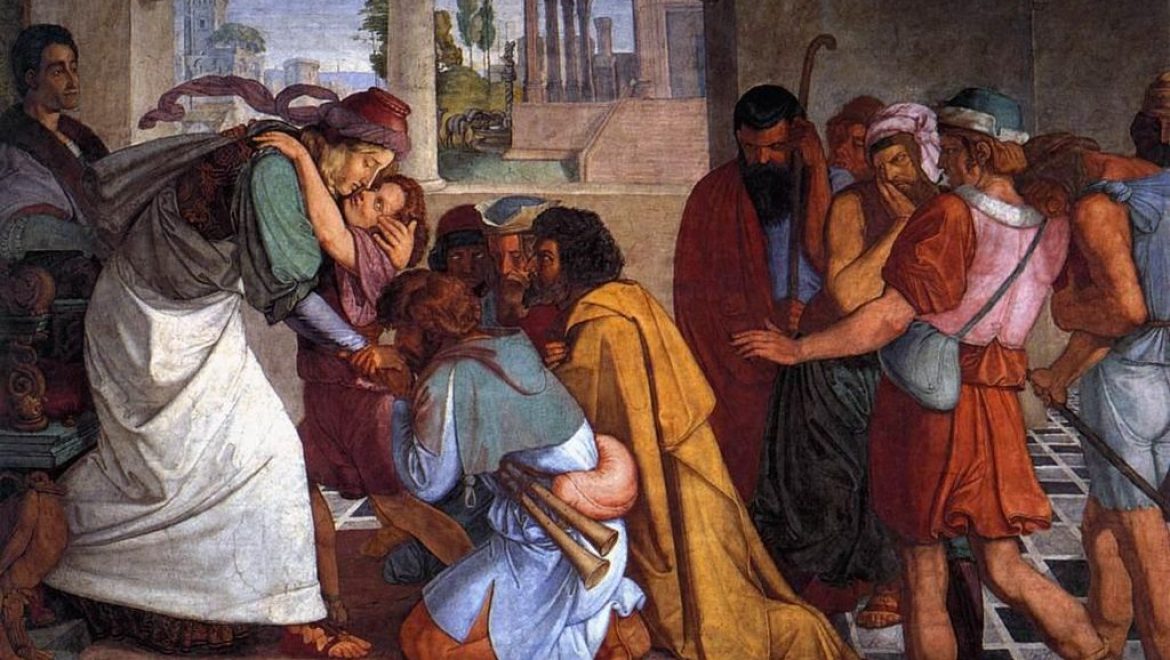
Parashat Vayigash
“And these are the names of the sons of Israel who came to Egypt with Jacob and his sons…everyone, his sons and his daughters, were thirty-three.” (Genesis 46:8).
And Rashi wrote: “And in their listing you find only 32, but Yocheved was born between the walls when they entered the city,” and this is from Gemara, Baba Batra 123b.
But Ibn Ezra wondered about this, for if it were so, “Why did the Scripture not mention this miracle done for her, that she birthed Moshe when she was 130 years old…(for Moshe was 80 when the Jews left Egypt and they were in Egypt 210 years) and why was the matter of Sarah, who was 90 years old, mentioned?”
Ibn Ezra, as is his way, disagrees without fear with Chazal and explains that the thirty-three souls include our Father Jacob, and so wrote Rashbam, “According to the plain meaning of the text, thirty-three with Jacob.” So we learn that there is no Yocheved here nor a woman giving birth at 130.
Ramban answers Ibn Ezra’s question to maintain, at any price, the words of the Sages. “All the foundations of the Torah are in hidden miracles… for G-d wanted to redeem Israel through these brothers (Moshe and Aaron) and the time of ending had not come, so he delayed their birth many years until their mother was old, and there is nothing beyond G-d’s ability.” And you choose the way which seems correct to you: tales of miraculous births at 130 and the miracle of births delayed many years, or the plain meaning of the text, which shows a slight distortion in the words of the Scriptures.
However, the verse, “And all the souls, descendents of Jacob, were seventy souls” (Exodus 1:5) contradicts Ibn Ezra’s commentary, as Jacob himself is not his own descendent, and this is what Ibn Ezra answered: “Know that the Scriptures did not hesitate to remove one from seventy, just as when it wrote that ‘they were born to him in Padan Aram’ (Genesis 35:26) and Benjamin had not been born there.”
And thus the Ramban writes, that the Torah speaks ‘in generalities,” inclusively, and not with absolute accuracy (Genesis 36:12) “And the reason of ‘these are the sons of Adah’ is it is inclusive, for Amalek is not her son, and so ‘These are the sons of Jacob born to him in Padan Aram’ is not about Benjamin.”
Here our rabbis taught us a very important thing: that the Torah speaks in generalities and not necessarily in precise details. If it is not precise on whole words and writes 70 instead of 69, what shall we say about her letters and her decorations? This is in complete opposition to the aggadah brought in Tractate Eiruvin 21a, “His ends are curls: Rav Chisda said: Mar Ukba taught, one should elucidate from each jot and tittle heaps and heaps of halachot.” And Maharsha wrote, “One should use them to elucidate heaps and heaps of halachot which touch upon the Revealed.” And in Menachot 29b it is brought that the jots which are meant are the decorations on the letters of the Torah.
But when you check, you who seeks truth, and seek thoroughly, you will find that there is no halacha or custom which arises from the decorations. If so, upon what was Rabbi Akiba commenting when Moshe found him commenting on each and every jot heaps and heaps of halachot (as is told there). Against your will you have to admit that what they said were words of aggadah, things which are meaningless. A proof for our words comes from the responsa of Rabbi Y. Birav, section 62, “Why should we belittle the honor of the Torah scroll for naught, to learn from it what is unnecessary, as we learn nothing from deficient and full spellings and decorations and cantillation, as it was in their days.”
Moreover, the known truth is that even on matters of halacha which can be precisely measured, Chazal were not precise at all. In the Gemara, Succah 8a, Rabbi Yochanan permits a round succah if its area is large enough to seat 24 people. And then the Gemara concludes that Rabbi Yochanan was imprecise by an amah and a fifth. If in a matter of teaching such as this, about which one can be precise, the Sages were not careful of their words’ precision, what shall we say and what shall we tell about matters of intellectual approximation and emotional deduction?
And there are many other places in Gemara with similar matters.
It has already been said about in Hulin 90b, “Rabbi Ami said that the Torah spoke in the language of exaggeration, the Prophets spoke in the language of exaggeration, the Sages spoke in the language of exaggeration” and how do these words reconcile with the beliefs about the absolute and Divine precision of each word, letter, mark and jot in the Torah? Here, from the words of the Sages and the Rishonim we see that this has no leg to stand upon, and one who understands will understand.
Words of True Knowledge
s.
